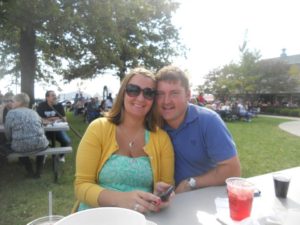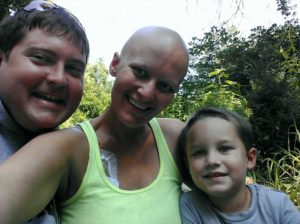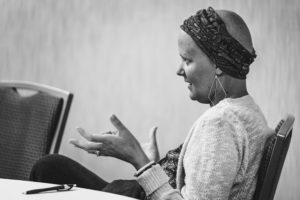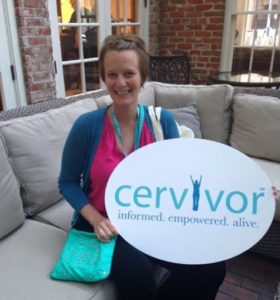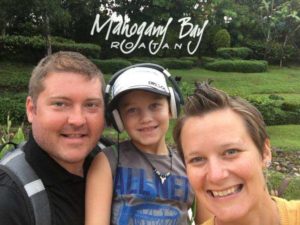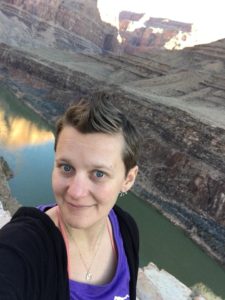Four months after our beautiful beach wedding in Tulum, I was diagnosed with early stage cervical cancer. I had a longstanding history of high-risk HPV and abnormal Pap smears, but it was still a shock for me because I had done everything “right”. I’m a healthcare professional and was familiar with HPV and the risks of it lingering in my body. I never missed a Pap smear, biopsy, procedure or follow up, and I still got cervical cancer. Fortunately, my gynecologic oncologist understood how important fertility was to both myself and my husband, and so I was planning to undergo a fertility-sparing surgery called a radical trachelectomy, where they remove the cervix but not the entire uterus and ovaries. I met with the onco-fertility team approximately three days after my diagnosis. They offered to get started right away with egg retrieval and egg or embryo freezing. I didn’t want to do that unless I absolutely had to since the average cost is about $15,000, and I was still going to have my ovaries after surgery. In the worst case scenario in which I would need pelvic radiation after surgery, I had six weeks between surgery and the start of radiation to do egg retrieval. This was a great plan in my mind.
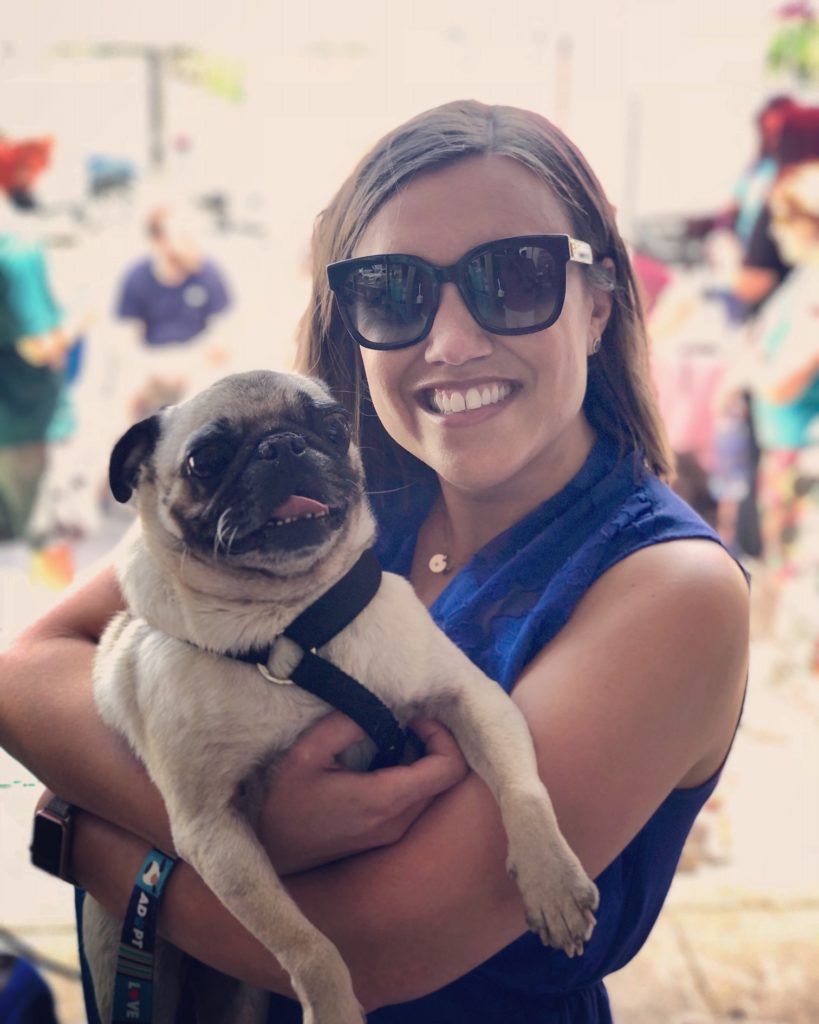
I have always wanted to be a mom. I’ve been a dog mom for 13 years and have never been more ready to be a mom (to actual people) until I got married in February 2017 to my best friend and partner in life. We met online, were each other’s first date on one of those popular dating websites, and the rest is history. We had talked about our future family on multiple occasions prior to getting married, and we wanted to start trying to build our family about a year or so after getting married since I was 32 and not getting any younger.
Three weeks later at my pre-op appointment, I had the shock of my life. My tumor had doubled in size in only three weeks from three to six centimeters. My cervix was completely covered in cancer, and I was no longer a surgical candidate since my cancer now had “high risk” features based on how fast it was growing and was now considered locally advanced. Also, given that my cancer was growing so quickly, it was the recommendation from my gynecologic oncologist and radiation oncologist that I proceed with treatment ASAP. Given the circumstances and our fear, my husband and I were in agreement to move forward with treatment without doing egg retrieval. My last resort was to undergo a bilateral ovarian transposition (move my ovaries out of pelvic area) to try to save at least some small piece of my fertility, but more realistically, to attempt to preserve some ovarian function so I didn’t become post-menopausal at age 32. It was a 50/50 chance to try to preserve my ovarian function and much less of a chance to preserve fertility.
The ovarian transposition wasn’t successful, and now I’m 34 and post-menopausal. Fifteen months after the completion of chemo-radiation, my hormone levels are still post-menopausal, and my ovaries don’t show any eggs ready to retrieve. Sometimes, I feel like my body failed me again (cancer being the first fail), but I have to remind myself it wasn’t me, it wasn’t my body – it was the treatment that did this to me. The odds were against me, but it wasn’t anyone’s fault, especially my own.
I’ll never know why this happened to me. Nobody deserves to lose their chance to have a biological child. Fertility is a loss so great that it cannot be put into words. I will forever be grateful for my treatment team, support system and my body for healing me, but this loss is permanent and at times, has overshadowed the amazing response to treatment that I was so fortunate to have. I have gone through every emotion possible over the past 15 months. The grief that follows is extraordinary. It is a pain and grief that nobody can fix and no one can comfort. It is not just my pain though; it is my husband’s pain too. It is the loss, pain and grief of so many young adult cancer patients and so many couples.
This past year has been a process. A process of grief, depression, anxiety, anger and many tears, as well as gratitude, blessings and opportunity. I have done a lot of personal work, some of which was by myself and some of which involved other people including my husband, family, friends and a counselor. My onco-fertility team was thoughtful enough to suggest a grief/infertility counselor to help me through this loss. In seeking the help of a counselor, I have begun to learn to accept my feelings. I try not to be angry with myself for not pursuing egg retrieval the day I was offered it. I am trying to practice self-compassion.
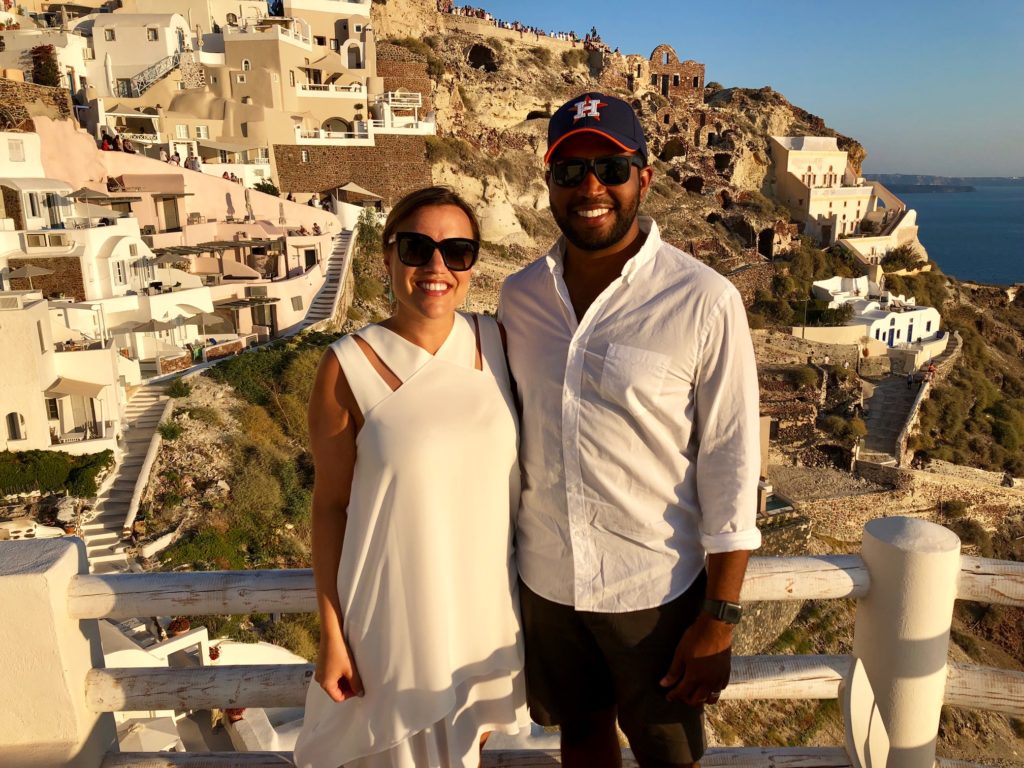
I realize I can and will have children and the family I dreamed of, although not in the way in which I planned. I acknowledge that sometimes it still hurts, and I will continue to have moments and even periods of time that I will still grieve this loss and re-experience the anger, sadness and hurt all over again. I understand that this is a part of my life and that’s okay. I will carry a piece of this grief with me for the rest of my life. It is not something that goes away, but it is more of something that you learn to live with and something that becomes part of who you are. It is also a part of my relationship with my husband and will help shape our relationship. Nothing can prepare you for a cancer diagnosis, and nothing can prepare you for fertility loss. These life-changing experiences know no boundaries and do not discriminate. What I have realized though, is fertility loss doesn’t mean I can’t have children or a family. Cancer has changed my life, but it can’t take this away from me.
Megan Tanner is a 1.5 year cervical cancer survivor, nurse practitioner and pug-lover. She lives in Houston, TX with her amazing husband, Greg, and their two perfect pugs. She hopes to one day see full infertility coverage by all employers and health insurance plans in all 50 states.
